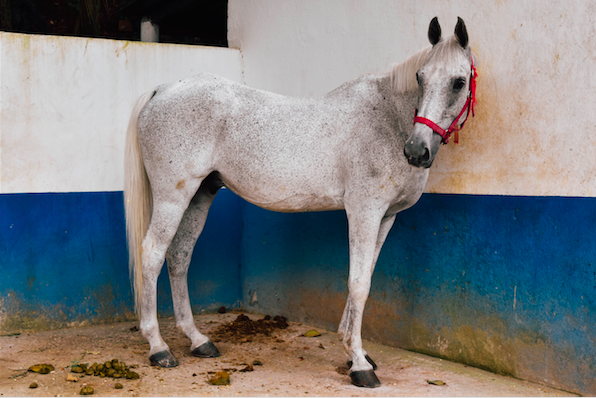Study proves that horses can recognize human emotion
Psychologists from the University of Sussex have carried out a study on “Functionally relevant responses to human facial expressions of emotion in the domestic horse (Equus caballus).” Published in the journal The Royal Society: Biology Letters on 16 February 2016, this experiment shows that horses do indeed recognize human emotion based on facial expressions. The team of researchers had photographed people that demonstrated two types of facial expressions: one in which the person was smiling, indicating happiness and one in which the respective person was frowning, indicating anger. These images were then printed in large, high quality sizes and taken to a stable of riding horses. The twenty eight horses part of the experiment were presented with such colored photographs and responded remarkably, showing the impact of human domestication over centuries.
Regarding the steps taken to execute such experiment, psychologist Amy Victoria Smith explained that “one person [presented] the photo while another [held] the horse.” She then explained how the horse would react upon encountering the expressions, “they looked [at angry faces] with their left eye.” Given that the information mammal brains receive from the left eye is processed by the right side of the brain, which is “is specialised for processing negative stimuli,” the researchers were able to conclude that yes, horses do indeed perceive the difference between a happy expression and an angry expression. Additionally, heart monitors were placed on the horses while they were analyzing the images. This also revealed that upon encountering an angry human (facial expression), the horse’s heart rate would significantly speed up.
Humans and horses have been living alongside each other for approximately six thousand years, so it is inevitable that there would be some effect on both species. Ms. Smith explained, “we have known for a long time that horses are a socially sophisticated species, but this is the first time we have seen that they can distinguish between positive and negative human facial expressions. It also shows this extra ability of horses; [it shows that] our behaviour around them has an impact.”
While being a new study, the notion of horses having the ability to understand human beings is not unfamiliar, as many equestrians have pointed out. However, according to Veterinary Surgeon at the University of Liverpool, Professor Debra Archer, “it is fascinating to see this tested scientifically; it is an interesting insight into the relationship between horse and human.”
Psychologist Karen McComb who was part of the research, affirmed that “these findings raise interesting questions about the nature of emotional expression recognition, including the relative roles of learning and innate skills in its development. Horses may have adopted an ancestral ability for reading emotional cues in other horses to respond appropriately to human facial expressions during their co-evolution. Alternatively, individual horses may have learned to interpret human expressions during their own lifetime.” Overall, it is apparent that horses do have an innate skill of identifying emotions between each other, due to the centuries of domestication, it is most likely that they have been able to evolve and utilize such skill with human beings.

Lord YeJin strikes back once again in The Talon as the Photographer, the Layout Editor, and the Image Master (finally!). Evicting Gabriel Civita, the former...







